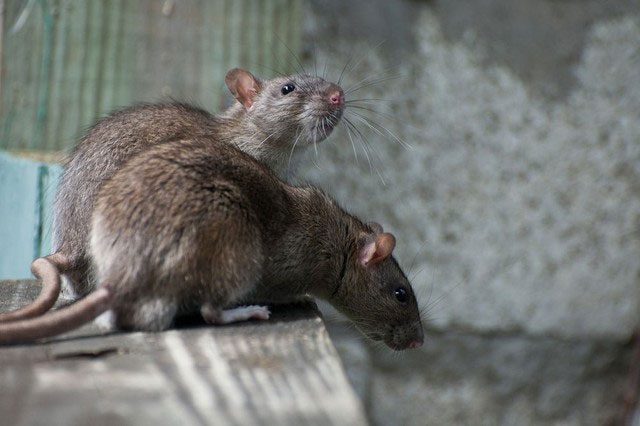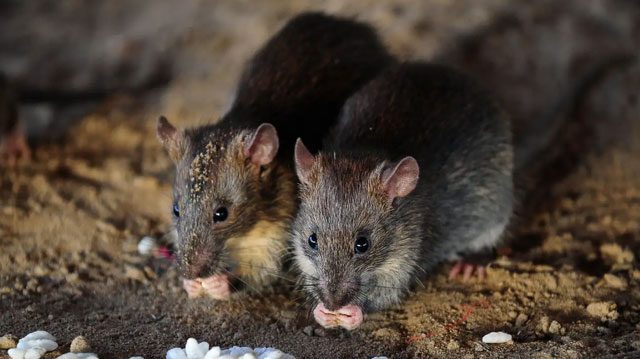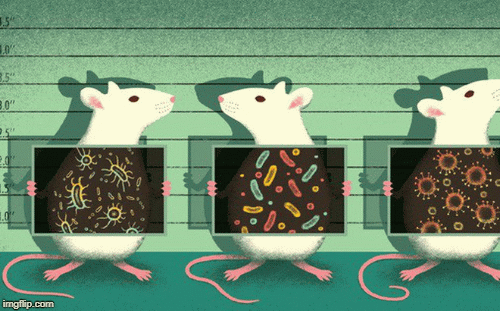Even if you hate mice, if they were to disappear, not only animals but also humans on Earth would face serious problems.
According to scientists, mice are medium-sized rodents. They have fur, long tails, upright round ears, bulging eyes, long whiskers, pointed snouts, and five-toed feet.
A terrifying fact is that mice have an incredible reproductive capacity, regardless of the season or climate. Mice can give birth to 8 to 12 offspring per litter (depending on the species). Alarmingly, every three weeks, a female mouse can become pregnant again and give birth to a new litter.

Mice reproduce at a very fast rate. (Photo: Livescience).
Typically, a female mouse will have 4 to 7 litters each year. Therefore, on average, each female mouse can produce 30 to 40 baby mice per year. If humans do not find a way to control their population, it is clear that mice could multiply exponentially.
Mice originated in Asia and Australia. However, as humans began to migrate, they followed along. As a result, mice are now found all over the world, with over 60 different species.
Despite this, mice are often despised by humans and have a bad reputation because they have been intermediaries in spreading diseases such as Hantavirus, Salmonella bacteria, and notably the terrifying pandemic known as the “Black Death” during the Middle Ages. This disease spread due to fleas that infested mice.
In addition, mice are often associated with unsanitary conditions and damaging household items.
Experts indicate that due to their sharp teeth and constantly growing incisors, mice can chew through electrical wires, plumbing, and even concrete. This leads many families to incur expensive repairs. Consequently, many people deeply dislike mice and sometimes even wish that this creature did not exist in the world.
However, according to researchers, none of this is entirely the fault of mice. They are simply trying to survive like all other animals around us. Furthermore, the destruction caused by mice is a small price we must pay for their role in maintaining ecological balance.
What would happen if mice disappeared?

If mice disappeared, the ecological balance would be affected. (Photo: Getty Images).
First, if mice suddenly vanished from Earth, the environment around us would be filled with trash. Mice play a crucial role in waste management. They often consume garbage and other items discarded by humans. Therefore, without mice, a significant amount of waste would accumulate around us, spreading diseases and putting pressure on governments to spend money on cleaning.
Second, mice play an important role in the food chain as prey for many animals, such as eagles, snakes, and other predators. This means that if mice no longer existed, these predators would have to seek alternative food sources, or they could even face extinction.
Does this seem to not affect human food sources?
This assessment is incorrect because mice actually contribute to the dispersal of seeds from plants. This is essential for the growth and survival of many plant species. Moreover, mice also play a role in decomposition by breaking down organic matter to ensure soil quality and nutrient cycling.

Mice play an important role in testing medicines and vaccines for humans.
Third, mice are considered “mascots” in current scientific research. Despite being seen as pests, mice are widely used in most studies, from vaccine trials, treatment research, behavioral studies, pregnancy tests, and more. Thanks to them, humanity has tested and discovered many medicines and vaccines for humans in the fields of science and medicine for hundreds of years.
In summary, the sudden disappearance of mice would also mean that ecological balance would be affected.


















































